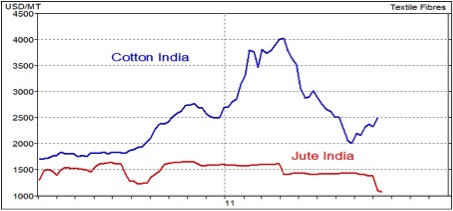|
Just like China¡¯s massive foreign debt holdings, China¡¯s workers¡¯ movement is an economic reality that is now too big to ignore. What China¡¯s 800 million workers want and what they get will impact not only on the cost of consumer products in the West but on the development of the market for international products and services in China. It could also, in the long run, affect the development of workers¡¯ rights globally. Over the last 30 years China has led the global race to the bottom, and in the process disenfranchised and impoverished millions of workers around the world. Just ask the employees of the Amazon warehouse in Allentown, Pa., where reportedly if you want to complain, take a break, or go to the hospital, you¡¯re fired. If China¡¯s workers can now start to reverse the trend and demand decent pay for decent work, then workers across the world could eventually benefit too. The Chinese government has recognized the need for change and is seeking to increase wages and improve working conditions on the factory floor. It hopes that by doing so it can boost domestic consumption, reduce social and economic disparity and cut the massive public health bill resulting from dangerous and hazardous work practices. However, because it has ceded so much power to employers over the last three decades, it now lacks the ability to implement and enforce its new policy directives. Nearly all of the recent gains made by China¡¯s workers have come as a result of their own efforts, not those of the government or the trade unions and certainly not the employers. As China Labour Bulletin¡¯s new report on the workers¡¯ movement shows, it is the workers that have seized the initiative: They are the ones demanding better pay and conditions; negotiating with the boss, and very often winning significant concessions. Of course sometimes they get nothing but the intent is clear. The international business community now has to decide how it will respond to this upsurge in worker activism in China. There is no point trying to stand in the way, so the question is how can we help ensure that the workers¡¯ movement develops in a healthy and sustainable manner? How can we minimize social conflict in this potentially wrenching process, and how can we ensure that not just workers but all stakeholders benefit from change. The continued development of corporate social responsibility (CSR) is often cited as an answer to labour problems in developing countries such as China. CSR has certainly helped raise workers¡¯ rights awareness, but, and this is a big but, those rights are still dependent on the willingness of the employer to adhere to the standards laid down in their code of conduct. Under CSR, workers have no real say in their own pay and working conditions, they are merely the passive recipients of largesse from well-meaning outsiders. And here we can see similarities in the flawed approach to workers¡¯ rights currently adopted by the sole legal trade union in China, the All-China Federation of Trade Unions (ACFTU). The ACFTU has also done a reasonable job in raising workers¡¯ rights awareness but it has singularly failed to support and stand by those workers when they try to exercise their rights. The ACFTU is afraid that if workers elect their own representatives and bargain directly with management, it will lose control of process and become sidelined, just as corporate codes of conduct would become irrelevant if workers could negotiate their own deals with management. So rather than elect worker representatives, the ACFTU prefers to parachute in so-called ¡°professionals¡± to negotiate with management on the workers¡¯ behalf. CSR too relies on professionals to assess the needs of workers and draw up codes of conduct on their behalf. The ACFTU¡¯s ¡°professionals¡± may mean well but they lack the commitment, dedication and resolve necessary to get the best possible deal for the workers. The primary allegiance of the professionals employed by the ACFTU and those working in CSR is not to the workers. Because the ACFTU does not have an effective presence in the factory, it has to rely on largely ineffective government inspectors to police agreements with management. The enforcement of codes of conduct likewise depends on auditors who are probably even less effective than government inspectors. Given these limits and failings, why not try another approach based on the already considerable achievements of China¡¯s workers? Why not build on the embryonic system of collective bargaining that they have already created, and help establish a more effective, institutionalized and sustainable system of collective bargaining at the factory level, which can stabilize and improve labour relations, and eventually benefit workers, management and government alike? If the international business community does not take this opportunity, and simply repeats the mistakes of the ACFTU, then CSR will continue to be little more than a public relations exercise. As we see every day in China, if you don¡¯t give workers a voice they will simply take matters into their own hands anyway, stage more strikes, protests and stoppages until the employer eventually agrees to make some concessions. The workers¡¯ movement in China is gathering momentum. It is time to get on the train or get out of its way.
Thestar
|
|
Chinese workers have a world role
Updated: 2011-10-14 Source: Thestar

Recommended News
Photo Gallery
Most Popular



